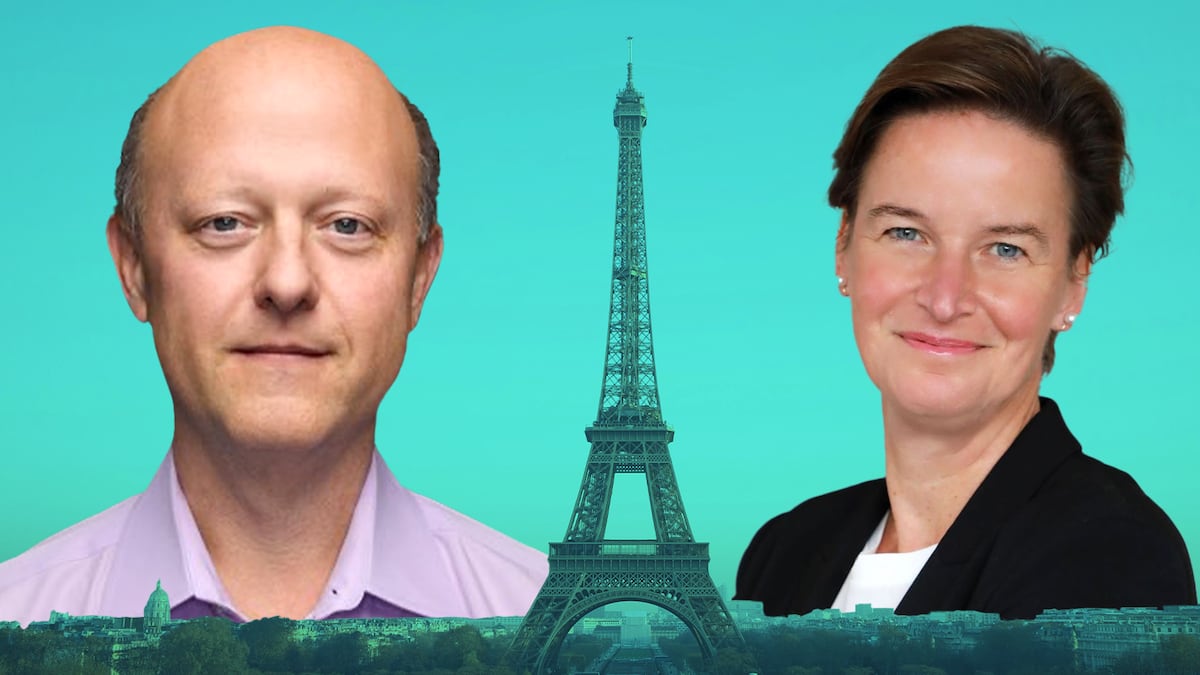- The vibe in Paris last week was a mix of relief and uncertainty as crypto regime takes shape.
- The EU may not be as crypto friendly as Americans expect.
- The SEC's move on Uniswap was the talk of the conference last week.
Last Wednesday morning, Verena Ross, the executive director of the European Securities and Markets Authority, delivered a reality check to hundreds of crypto industry partisans attending Paris Blockchain Week.
They were keen learn more about the European Union’s famous “regulatory clarity” around crypto. It was such a welcome contrast to the crackdown pursued by US regulators.
Yet Ross said MiCA — or Markets in Crypto Assets regulation — was no panacea for crypto ventures and she took issue with the notion that the EU was crypto-friendly.
“I’m not sure I would necessarily use the word friendly,” she told the 200 or so attendees.
“What we’ve done in Europe is the legislators have created a genuine regulatory framework specifically for crypto. That replaces what was a bit of a patchwork of different national approaches.”
For many US crypto heads chafing under a regulatory crackdown back home, that sounded just fine.
A heady market
For four days last week, 10,000 or so devs, investors, media types, and assorted C-level bosses convened in the French capital to gather insights and network.
Held in the Louvre’s subterranean conference centre, attendees heard from Binance CEO Richard Teng, Ripple head Brad Garlinghouse, and Circle CEO Jeremy Allaire.
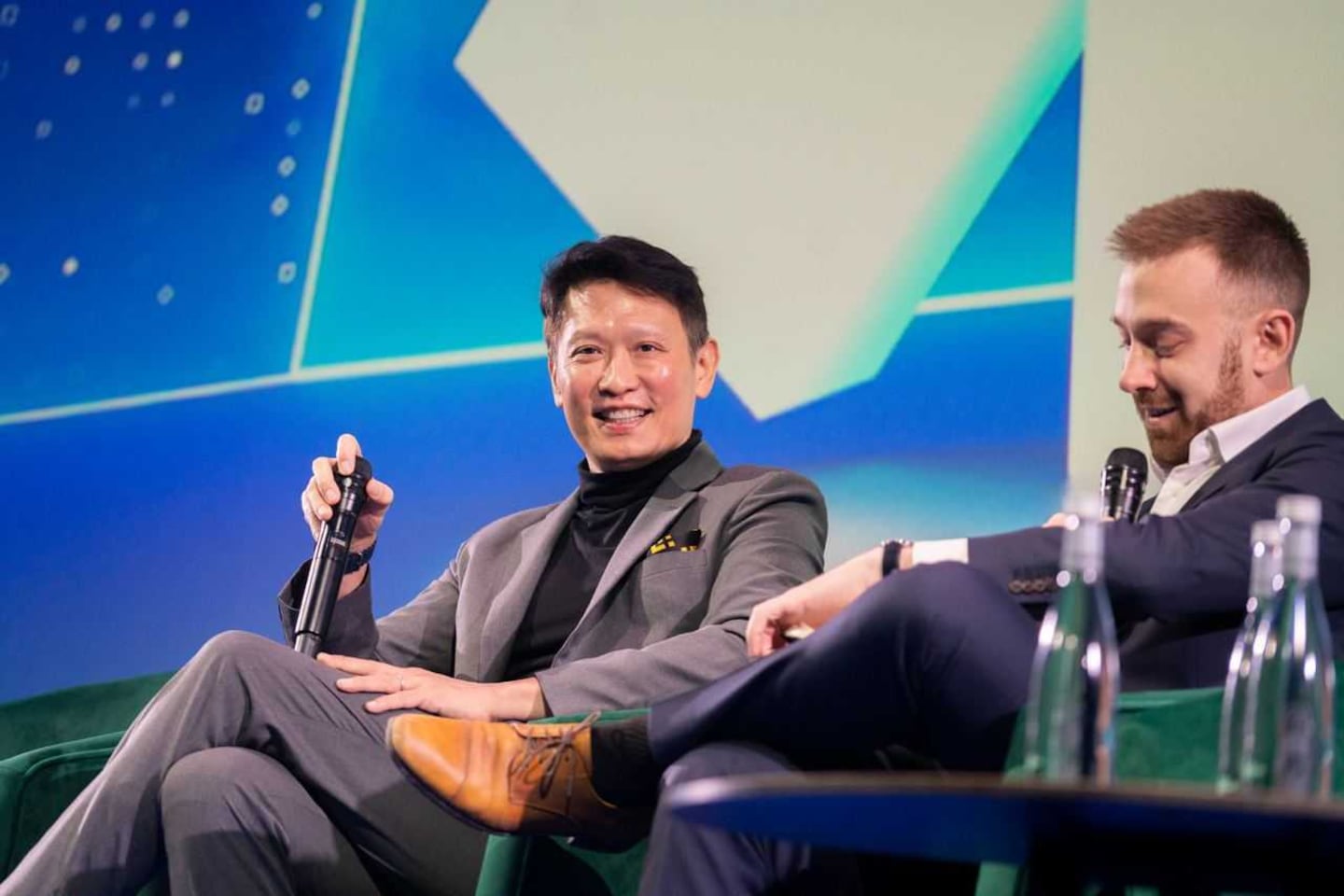
While Bitcoin ETFs and a heady market were very much top of mind, so too were the realities of operating in an increasingly regulated world.
France, of all nations, has been doing its utmost to present itself as an antidote to such anxieties. With tax breaks and investment incentives, French officials have welcomed crypto ventures.
“We had no other choice to make in Europe but France,” said Dante Disparte, Circle’s chief strategy officer and global and head of policy, during a panel at the stablecoin issuer’s event.
“Of course, not only the opportunities in the country, the depth of the capital markets, the depth of talent, the technology base, and, candidly, the regulatory clarity.”
But ESMA’s Ross struck a sober note. “The key clearly, and that’s a call for everyone here, is be prepared,” she said.
“Don’t underestimate that there will be a new regime and therefore that you do need to be able to comply with that.”
Betting big on France
Even so, Allaire and Circle, the issuer of the $32 billion USDC stablecoin, are betting big on France.
In 2023, Circle obtained a conditional registration as a digital virtual asset provider in France and set up its European base in Paris.
It also hired Coralie Billmann, a one-time payments exec at PayPal’s Luxembourg office and at JPMorgan Chase in Paris, to spearhead the operation.
In May, French President Emmanuel Macron invited 200 business leaders, including Disparte, to Versailles.
With MiCA coming into force by the end of the year, national regulators in the EU’s 27 member nations are busy formulating regulations to complement the landmark regime.
The linchpin of the regime is ensuring crypto ventures all get registered and licenced so investors are protected from the predatory practices that are running rampant in other markets such as Asia.
Passporting
For crypto businesses such as Circle, the practice of “passporting” will be crucial because it will enable them to offer their services to customers across the bloc from one locale.
“We have set up an office and infrastructure so that we can issue our coins out of France,” Billman said last Monday. “We want Europe and France to be a privileged market for our company.”
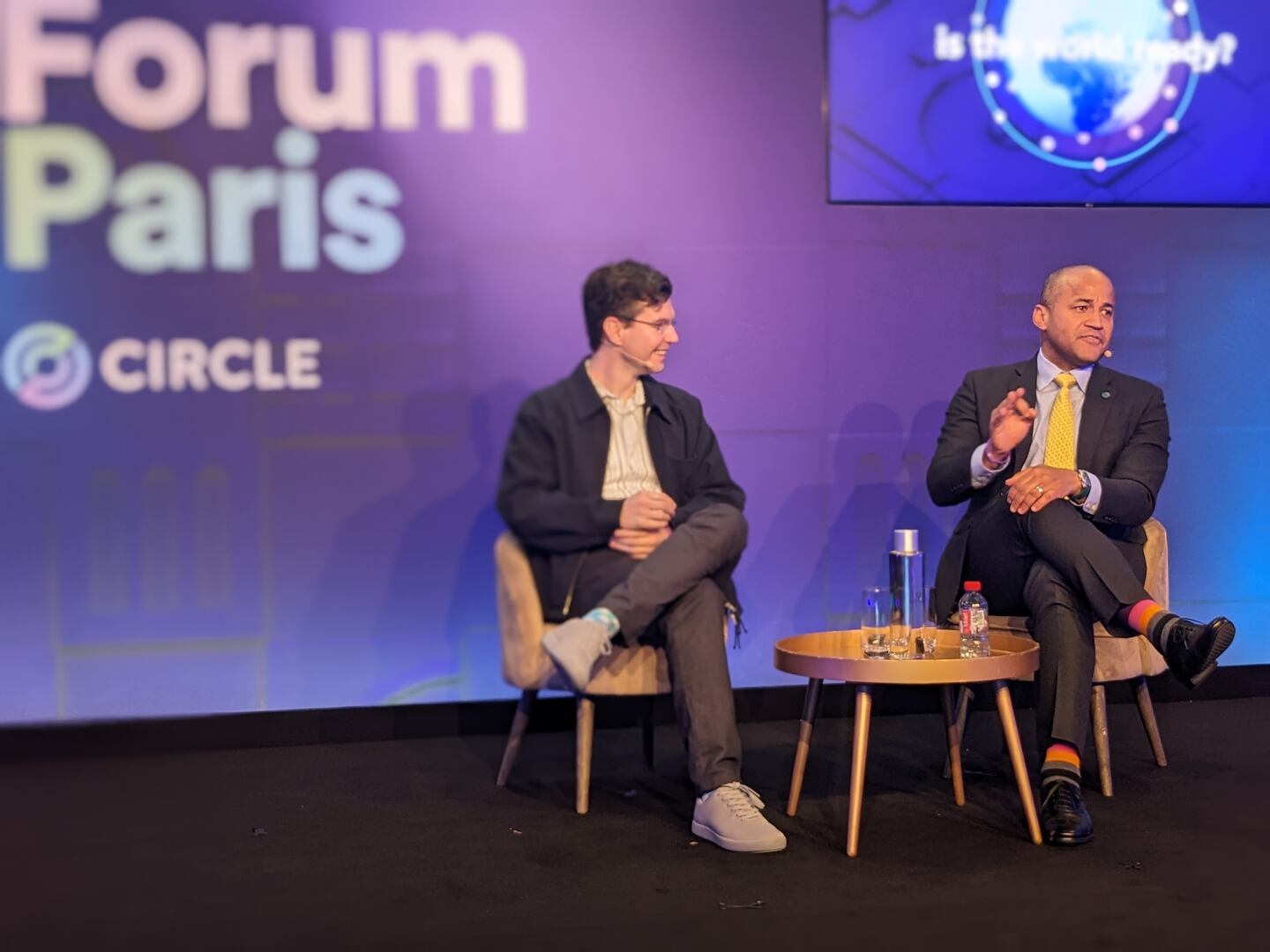
Inside a former vault once used by the Bank of France, Allaire took the stage in the Pavillon Vendôme last week to promote Circle’s euro-backed stablecoin, EURC, and sketch out his strategic plan.
“Today, blockchain technologies, web three, digital assets, are becoming major national priorities all around the world,” Allaire said.
“It’s a priority for the French government. It’s a priority for the Japanese government. It’s a priority for the Hong Kong government.”
To make his point, he presented one of his favourite crypto diagrams: A smaller circle inside of a larger circle.
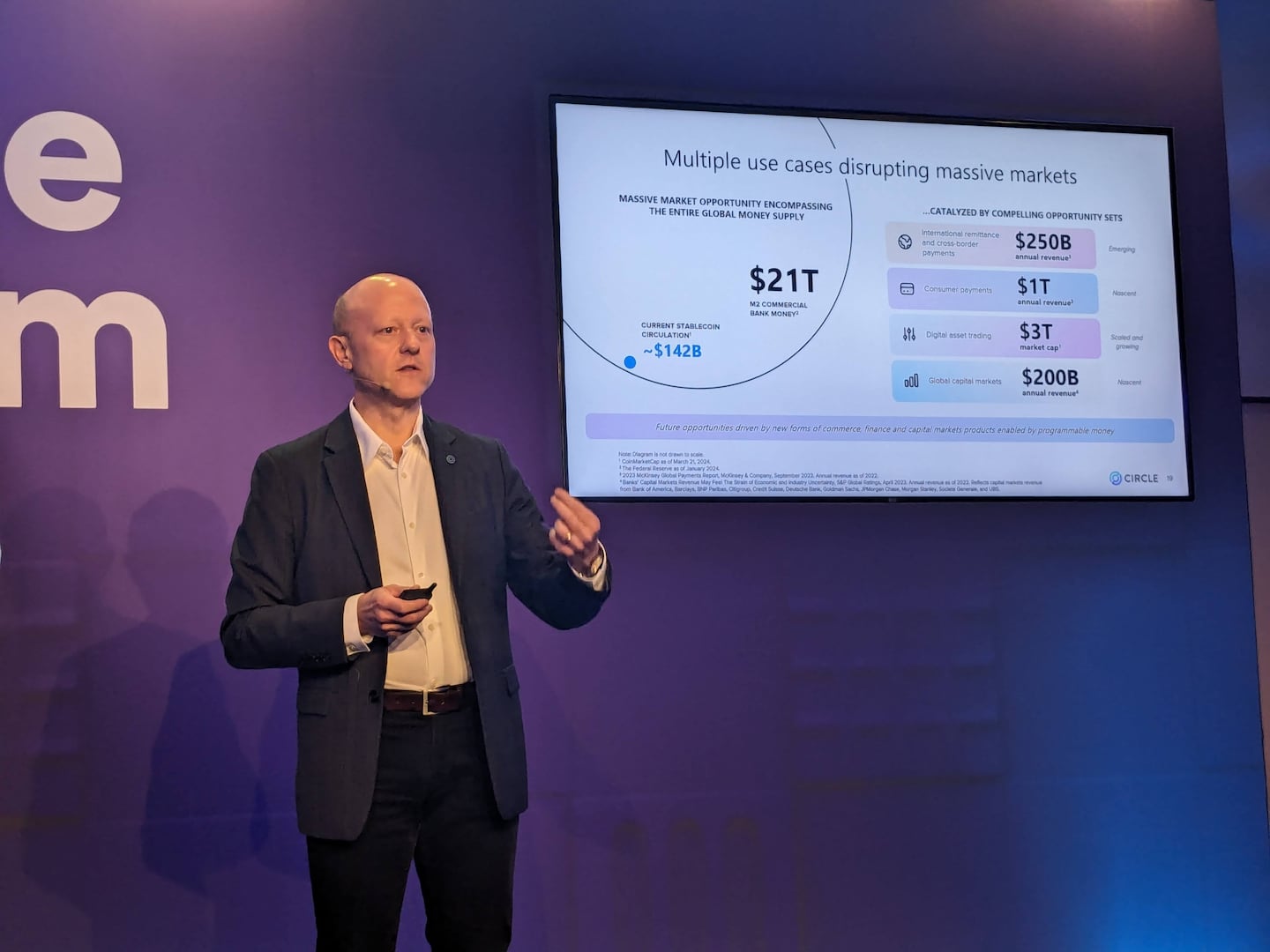
The smaller circle represents the value of stablecoins today — some $142 billion — and the larger circle represents the non-crypto version of electronic cash worldwide, more than $21 trillion.
Allaire’s point: Stablecoins are capable of growing by more than 850 times.
And Circle, which is mulling an IPO this year, is going to be invaluable for clients and investors.
Why? Because Circle follows the rules, says Allaire. And in France, that means MiCA.
“USDC and we expect, under MiCA, EURC are going to play really critical roles in how digital cash moves in and out of all of these different capital market structures,” he said.
“That’s where the growth is going to come from.”
Some US crypto execs at Paris Blockchain Week repeated the oft-said idea that the EU will pull crypto activity away from the US.
“We’re seeing the US almost cede leadership in what is a transformational technology,” Eric van Miltenburg, Ripple’s senior vice president of strategy, told DL News.
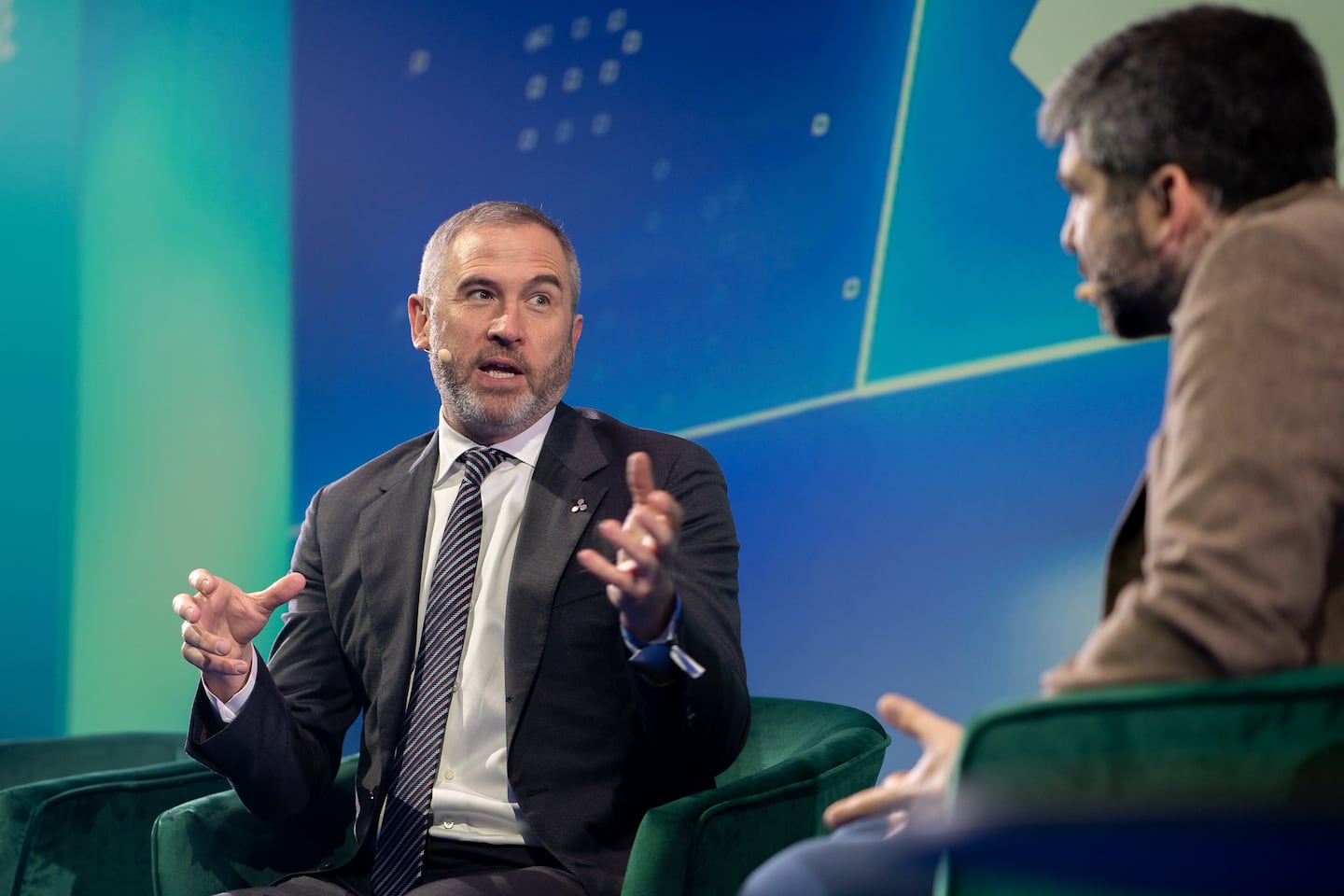
On Wednesday, news broke that the SEC notified Uniswap, a decentralised exchange, it was probably going to be sued for violating US securities laws.
Back in Paris, there were other concerns, notably getting on the guest list for the best side events.
Red carpet
That evening, conference attendees flooded Faust, a chic cocktail bar on the banks of the Seine. The Solana Foundation, a data provider called Pyth, and the buzzy memecoin Bonk were hosting a reception.
Alice in Wonderland’s card guards lined the red carpet leading into the bar. Inside, a white rabbit statue looked over partygoers. In the back, a court jester ushered others into a hidden speakeasy.
Behind the venue’s long bar stood a massive, red-and-white house of cards sculpture. Next to it, bright orange, red, and white lights shone the Bonk logo.
Hardly anyone seemed phased by the SEC’s move on DeFi’s $7 billion trading platform. Uniswap Labs is, after all, based some 6,000 kilometres from Paris. Far from bearish crackdowns and enforcement actions.
Instead, the vibe is far more optimistic. On the subject of Circle’s potential IPO bid this year, one Circle employee had just one regret.
“I wish I had more equity,” they told DL News.
Liam Kelly is DL News’ Berlin correspondent. Contact him at liam@dlnews.com.
